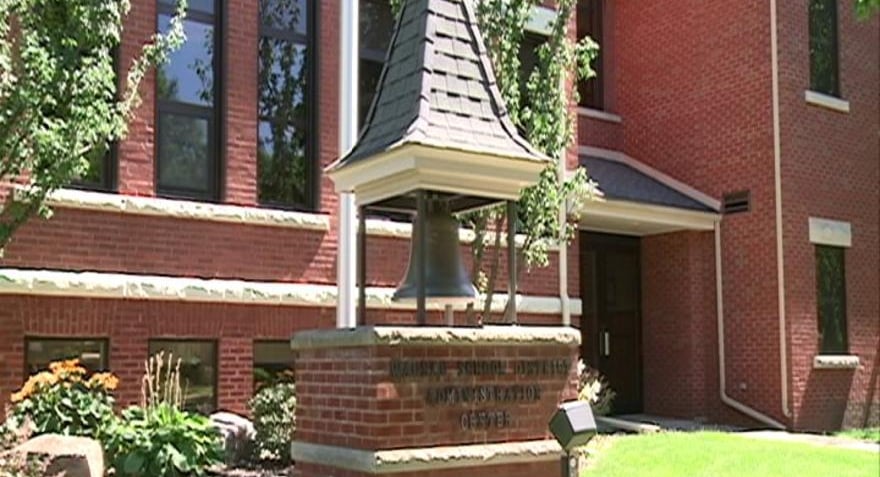By Shereen Siewert and Damakant Jayshi
A Wausau West teacher has come under fire after donning Native American clothing in class, a move critics call the Indigenous equivalent of “black face.”
The incident comes two years after the Wausau School Board led a statewide effort to remove Native American mascots and symbols. In 2019, the board unanimously passed a resolution calling the continued use of Native American mascots offensive and intolerable, an issue that “establishes an unwelcome, confrontational and hostile learning environment for students. Native Americans who affirms the negative stereotypes that are promoted in society at large. “
Although the state’s 11 federally recognized tribes joined 18 school boards in supporting the resolution ahead of the Wisconsin School Boards Association’s annual convention in January 2020, the advocacy group voted against lobbying of the Legislative Assembly for change. The vote was 218-101.
A photo of the teacher was posted on Facebook by Greg Johnson, whose son was in the class.
“Hey Wausau West High School, you were supposed to be a multicultural school,†the post read. “You were meant to be an improvement in my children’s education. Guess what. You are as bad as those schools in Georgia in the 1950s! You chose the wrong kids to dress and play Indian in front. My son witnessed some big bullshit from his HISTORY teacher today.
The district has not publicly identified the teacher, but released a brief statement Wednesday evening that said administrators are “reviewing a situation at one of our schools that is raising concerns about cultural sensitivity.”
“The district is conducting a thorough review of the concerns, as we always would,†said communications director Diana White, in her official statement. “We are also speaking with everyone involved to seek to understand the concerns. “
But psychologists, educators, and experts on Native American cultural issues have long said these cultural concerns are well documented, leading to a growing nationwide effort to eliminate Native American themed mascots.
“As the outgoing president of the Wausau School Board and as a Ho-Chunk woman, I am disappointed, shocked and horrified to learn about this racist and discriminatory incident that happened at Wausau West High School,” said Tricia Zunker at Wausau Pilot & Review. “Schools are meant to be safe learning environments, not a place where our students are forced to face racism and discrimination. This representation reinforces negative stereotypes and dehumanizes Native Americans. It is never good educational policy to stereotype against an entire race of people. “
Zunker referred to research showing that “the use of race-based mascots, nicknames and images has a detrimental effect on the educational experiences of all students; exacerbates inter-community conflicts; and creates a hostile learning environment for Indigenous students, which has lifelong consequences.
“My heart breaks for the native students who had to endure this damaging incident,†she said.
In 2005, the American Psychological Association called for the immediate retirement of Native American mascots because they undermine the educational experience of all students, both Native and non-Native. Other studies have reinforced this view, including a study published in June 2020 in the Race, Ethnicity and Education Journal. The study by Laurel R. Davis-Delano, PhD, of Springfield College; Joseph P. Gone, Aaniiih-Gros Ventre, PhD, Harvard University; and Stephanie A. Fryberg, Tulalip, PhD, University of Michigan, describes the results of a comprehensive review of studies on the psychosocial effects of native themed mascots.
“Although most people in the United States do not perceive Native American mascots as problematic, all of the academic studies undertaken to study the psychosocial effects of these mascots demonstrate either direct negative effects on Native Americans or that these mascots activate. and / or reinforce stereotypes and prejudices among non-natives, â€the researchers wrote.
The review described the negative psychological effects for Aboriginal students as “particularly low self-esteem, lower community worth, lower ability to generate possible selves linked to achievement, and higher levels of negative effects.” .
Regarding the claims of supporters, such names are intended to honor Native Americans, the authors wrote: “No study has proven that Native American mascots promote positive or beneficial psychosocial effects for Native Americans.”
Barbara Munson, chair of the Wisconsin Indian Education Association’s mascot and “Indian” logo task force, said in 2020 that she viewed it as a positive development that 101 school districts had voted to remove mascots and mascots. symbols based on race. Munson, who lives in Mosinee, spoke of efforts to have the Mosinee School District remove its longtime “Indian†mascot symbol.
“We teach our (students) to accept and tolerate symbols based on race,†Munson said in an interview with Wisconsin Public Radio. “This is not what we want to teach in schools. The time has come for a change. And once you know what you’re doing is harmful, change it.
Speaking to Wausau Pilot & Review, Munson said it was inappropriate for any non-Indian person to enter class in Indian costume.
“It’s really disturbing because it concerns the Indian mascot issue,†she said. “People need to be aware of stereotypes. Why is it good education policy to encourage students to stereotype people? ”
She added that educators can use clothes on hangers or models if they have the expertise to do so to teach Native American history and culture.
Munson praised the school administration’s announcement that the incident is being investigated.
“This is a good first step,” she said, adding that the Wausau school district could partner with WIEA and other Indian associations to improve their curriculum. “This may be the start of an exemplary program in the district of Wausau.”

